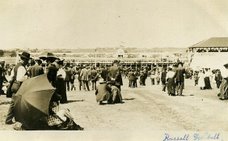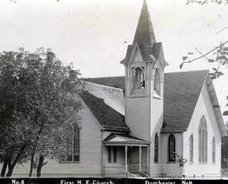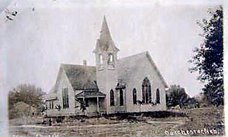The Dorchester Times proudly names coaches Brandon Bruha and Brent Zoubek and all the members of the 2024-2025 Dorchester High School girls basketball team as the Citizens of 2025.
The team's efforts resulted in a 24-3 record, as the Lady Longhorns stormed through districts to reach the Class D-2 state championship game. It was the best state tournament run in school history -- for either girls or boys, in any sport -- and a moment that put Dorchester girls basketball on the map.
Head coach Brandon Bruha was named Nebraska's high school girls basketball coach of the year earlier in 2025, while assistant coach Brent Zoubek brought years of DHS experience to the team's leadership. Their blend of strategic coaching have helped the Lady Longhorns establish their own brand of basketball and gain notoriety throughout the state.
The 2024-25 Lady Longhorns were led by last year's seniors Gabrielle Theis, Baylor Behrens and Atley Zoubek, as well as a host of underclassmen. See the full lineup of Lady Longhorns from last season.
It takes a community working together to achieve a great quality of life. Endeavors like this not only make life in Dorchester and the surrounding area more enjoyable, they are often the centerpiece of our most relished memories, which make our young people want to come back and continue to be a part of our community.
Previous winners of the Dorchester Times' Citizen of the Year Award have been Greg Tyser and Lori Sip Cerny, the members of the Saline County Historical Society board, Dorchester's small business owners, splash pad donors, Brent Zoubek (solo), Greg Tyser (solo), Peg Bergmeyer, Penny Keller, Carol Olson, Dale Hayek, and Bill Velder.
Honorable
mentions submitted to the Times by staff members either this year or in
previous years include (in no particular order): The members of the
Dorchester Volunteer Fire Department, Dorchester Public School staff,
Bret Cerny, Roger Miller, Judy Schweitzer, Tammie Lang, Bob and Marva Kasl, Daryl Schrunk, Andrea Pracheil,
Julie and Joe Holly, Deanna Bird, Craig Bergmeyer, Amanda Cerny, Sarah
Wenz, Tom Cerny, Nancy Tellez, Larry Kaspar, Phil and Bernice Weber,
Lyle Weber, Donna Parks, Shelly and Rose Bruha, Todd Axline, Jason and
Kathy Duhrkop, Mike Pracheil, George Kasl, Ben Haufle, Marv Kohout,
Sarah Wenz, Matt Smith, Novak Auction Service, Don Eret, Steve Ottmann,
Scott Pohl, Eric Stehlik, Joyce Karl, Adam Briggs, Rob Parks, John
Bruha, Mark Bors, Joel Weber, LJ Barley, Mark Bartek, Allan Papik, Dan Nerud, Mike Nohavec, Brandon Bruha, Lisa and Kevin Veprovsky, Kelly Vyhnalek, Matt Shaw, and Sandy Rains.
Congratulations to our Times' Citizens of 2025.
%20(1).png)














































































